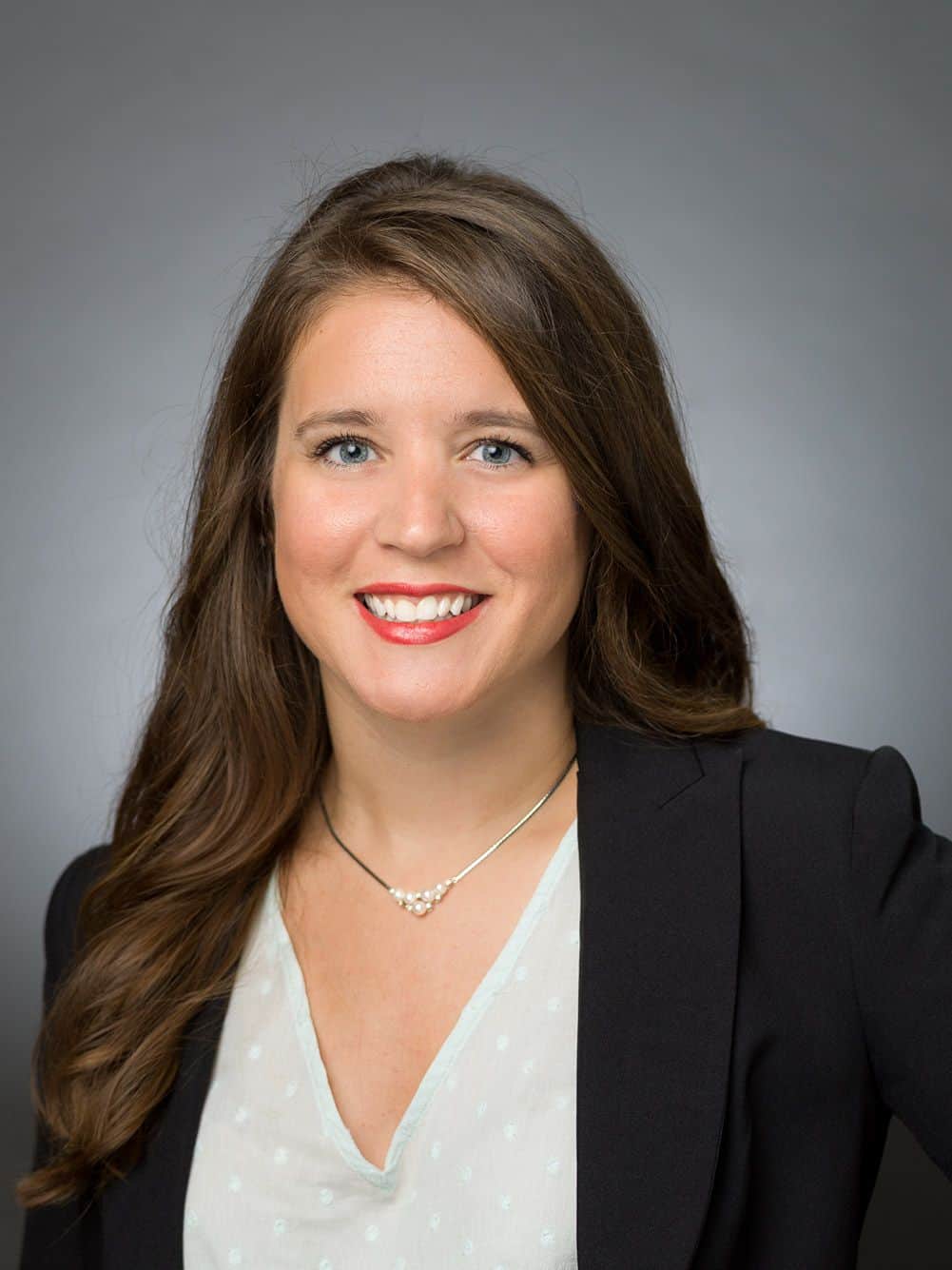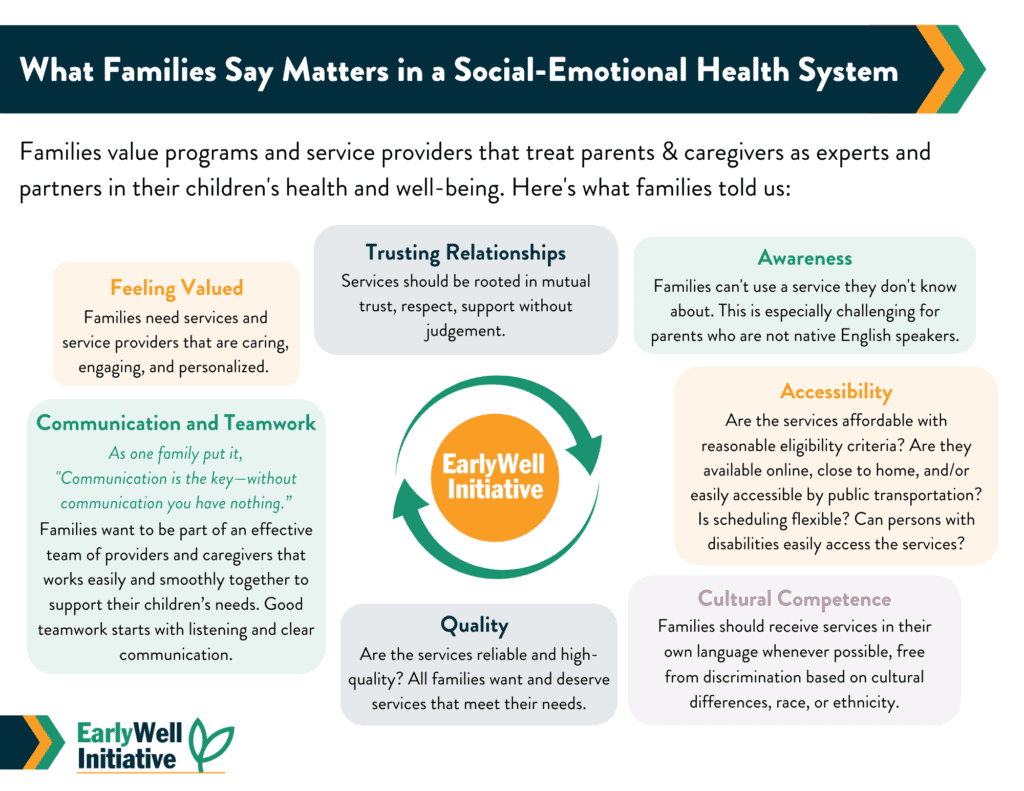As we begin to recover from the COVID-19 pandemic, families with young children are reeling. Some have been lucky enough to have safe, continuous child care and other community services throughout the pandemic. Many parents have lost jobs. Others have been struggling to juggle work-from-home jobs with babies and toddlers on their laps. Millions of women nationwide have left the workforce, straining family incomes. Babies and young children need age-appropriate social, emotional, and mental health support now more than ever. That’s why we’re so encouraged by the progress that the NC Initiative for Young Children’s Social-Emotional Health has made over the last year.
Introducing EarlyWell
We’re excited to announce that the NC Initiative for Young Children’s Social-Emotional Health has officially adopted a new name, the EarlyWell Initiative. We hope that this simple, straightforward name will help bring together even more stakeholders to strengthen and enhance services for infants, toddlers, young children and their families across North Carolina. Find out more about the initiative on our website.
Reflecting on the first year
EarlyWell is made up of over 100 service providers, clinicians, and advocates for children’s social, emotional, and mental health.
Throughout the pandemic we’ve convened virtually to map the current social, emotional, and mental health landscape for children birth to age eight in North Carolina. We worked closely with Empowered Parents in Community (EPiC) to ensure that we kept racial equity at the center of our work. We partnered with four local family-centered organizations to collect family perspectives on early childhood services across the state. That work helped us develop our vision for the EarlyWell Initiative.
Listening closely to families, partners in the EarlyWell Initiative recently created a vision for North Carolina’s social and emotional health ecosystem, described in the graphic below. The experiences and feedback of families is the most important component shaping our vision for policy change in North Carolina. These are the values that will guide the Initiative in 2021 and beyond as we develop our state action plan and policy agenda.
Lean In & Listen Up report
Mostly recently, NC Child, alongside the North Carolina Early Childhood Foundation (NCECF), released a new report, Lean In & Listen Up: How can we strengthen North Carolina’s early intervention, early childhood, and mental health services? By listening to families.
To create this report we partnered with four local family organizations: Family Support Network of NC, Charlotte Bilingual Preschool, Passage Home, and Families Moving Forward. These partners interviewed and surveyed more than 200 North Carolina families in 28 counties to listen and learn what social, emotional, and mental health means to them. The interviews and surveys asked parents directly about what they wanted and needed to support their families, and how to improve services. Over the coming months, NC Child and NCECF will continue to release information about what families shared in these interviews and surveys.
I was pleased to get the chance to share some take-aways from the Lean In & Listen Up report on NC Child’s recent Legislative Update call, along with my colleague Banu Valladares, Executive Director of Charlotte Bilingual Preschool. If you missed that call you can watch the video here. We shared some of the valuable lessons we learned from parents and caregivers across North Carolina.
Parents are the Experts
One of the most important things we heard from families is that they are not looking for a “system” or institution to label or fix their children. They want to be treated with respect, and treated as the experts they are on their own children. As one parent put it, “Nobody knows your child better than you.” As we look towards policy changes that remove barriers to children’s healthy social-emotional development, we must continue to look to the experts, parents and caregivers, to guide our planning and decision-making.
“Healthy, well-adjusted parents are the most important resource for young children’s social-emotional health and development.” – Banu Valladares, Director, Charlotte Bilingual Preschool
EarlyWell Policy Agenda
Over the coming months, the next phase of our work will be to take what we have learned to develop the North Carolina Young Children’s Social-Emotional Health Action Plan. This policy agenda will be specifically focused on the social-emotional health and wellbeing of infants, toddlers and young children throughout our state. I look forward to sharing with the community over the coming months as EarlyWell continues to collaborate with families – the best experts on our state’s babies and young children – to build and advance this comprehensive policy agenda.



